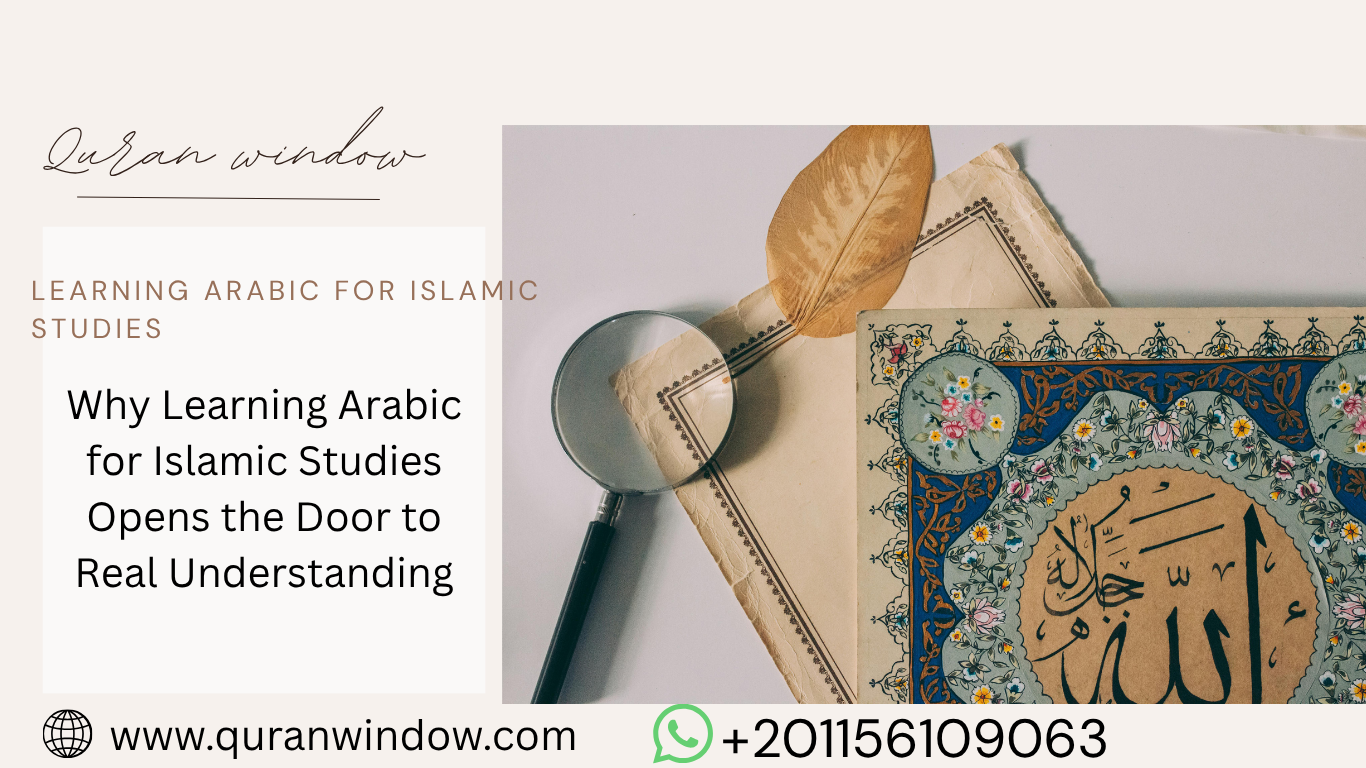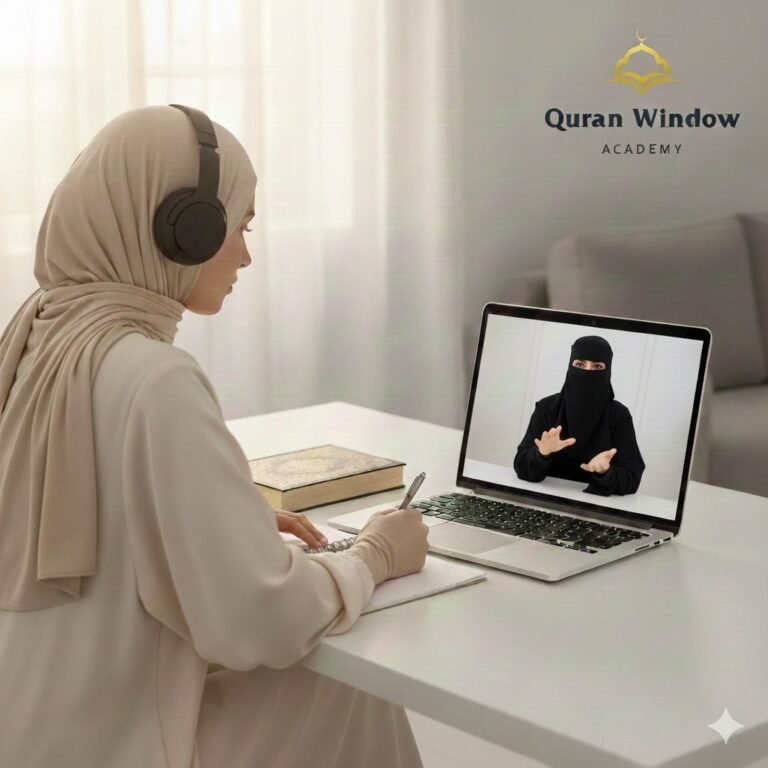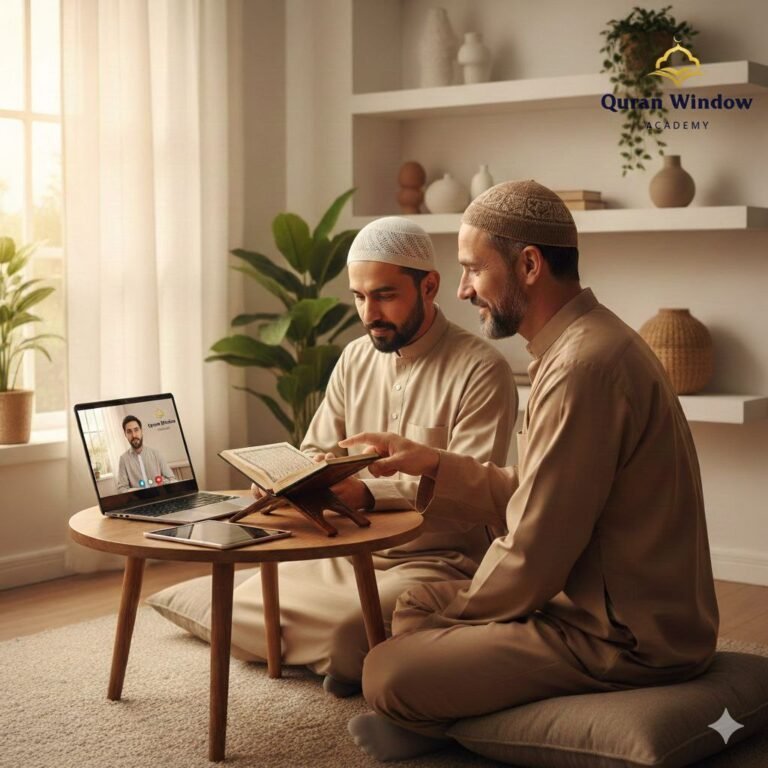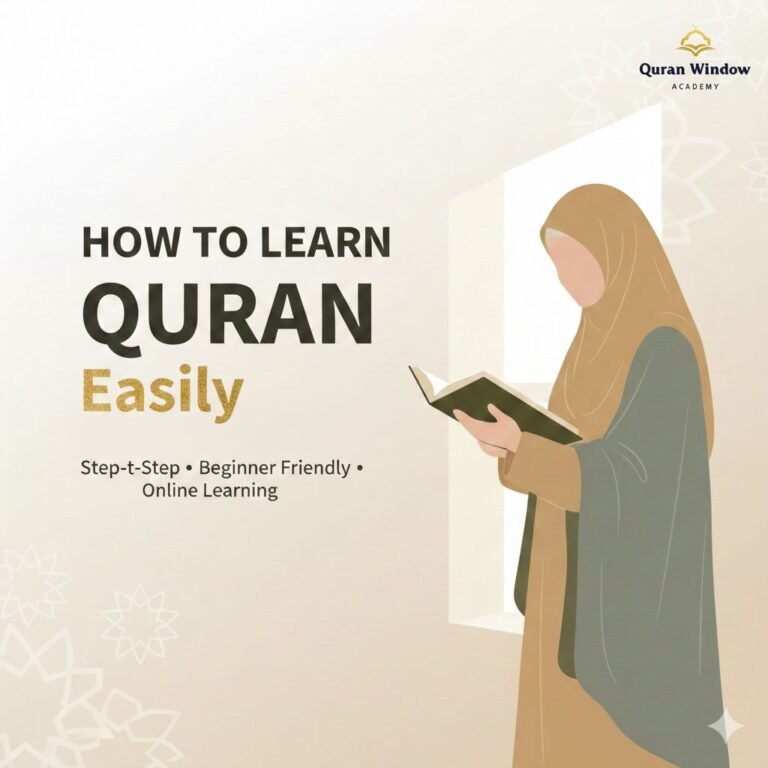Learning Arabic for Islamic Studies Opens the Door to Real Understanding
Learning Arabic for Islamic Studies Opens the Door to Real Understanding
For every Muslim who dreams of understanding Islam beyond translations, Learning Arabic for Islamic Studies is the key that unlocks the real meaning of faith. Arabic is not just a language — it is the very vessel of the Quran, the Sunnah, and centuries of Islamic scholarship.
When you learn Arabic, you’re not simply learning words or grammar; you’re reconnecting with the foundation of Islamic revelation. You begin to see how each verse, each hadith, and each classical text carries layers of divine wisdom that no translation can ever fully express.
In this article, we’ll explore 7 life-changing reasons why Learning Arabic for Islamic Studies can transform your relationship with Islam — and how you can start your own journey today.
1. Understand the Quran in Its Original Words
The Quran was revealed in Arabic for a divine reason. Allah says:
“Indeed, We have sent it down as an Arabic Quran so that you may understand.” (Quran 12:2)
When you read the Quran in Arabic, you experience meanings that translations often simplify or even miss entirely. For example, a single Arabic word like taqwa carries layers of meaning — piety, awareness, fear, and love of Allah — that no single English word can fully capture.
Learning Arabic for Islamic Studies helps you approach the Quran not as a translated book, but as a living conversation from Allah to your heart. It allows you to pause on every word, reflect on the beauty of its structure, and connect emotionally and spiritually with the divine message.
The more Arabic you learn, the deeper your understanding of the Quran becomes — and the closer you feel to its source.
2. Unlock the Wisdom of Hadith and Sunnah
While the Quran is the foundation, the Sunnah completes our understanding of Islam. The Prophet Muhammad ﷺ spoke in the most eloquent Arabic ever known — concise yet filled with meaning.
For students who rely solely on translations, many hadiths lose their depth. Subtle linguistic details, context, or humor that the Prophet used may vanish in translation. But when you study Arabic for Islamic studies, these treasures reappear with clarity.
You begin to appreciate the beauty of prophetic speech — how he used rhythm, word choice, and metaphors to guide and comfort his companions. This direct access to the Hadith in Arabic strengthens your connection to the Prophet ﷺ and his teachings.
3. Access Classical Islamic Texts Without Translation Barriers
From Imam Al-Ghazali’s Ihya Ulum al-Din to Ibn Taymiyyah’s works and Tafsir Ibn Kathir, the heart of Islamic knowledge lies in Arabic. While many great scholars and translators have made these works available in English, no translation can perfectly capture the author’s original intent.
When Learning Arabic for Islamic Studies, you gain direct access to these timeless sources — without relying on someone else’s interpretation. You can explore Fiqh, Tafsir, Aqeedah, and Seerah in their authentic form.
Imagine opening a book written hundreds of years ago and reading the scholar’s exact words — feeling his passion, precision, and devotion. That’s the gift Arabic offers to every serious student of Islam.
4. Strengthen Your Islamic Identity
In a world where many Muslims feel disconnected from their roots, Arabic acts as a bridge between your faith and your identity. The Arabic language carries the rhythm of revelation; it’s the sound of the Adhan, the words of prayer, and the heart of every dua.
When you learn Arabic, you’re not just studying vocabulary — you’re embracing your Islamic identity. You begin to think, feel, and express yourself through the same words that shaped the earliest Muslim generations.
This sense of belonging builds confidence. You no longer depend entirely on translations or cultural filters; instead, you connect directly with the words that defined Islamic civilization for centuries.
Learning Arabic for Islamic Studies isn’t just intellectual — it’s emotional, spiritual, and deeply personal.
5. Connect with Scholars and Global Islamic Knowledge
The global Islamic community is rich with knowledge, but language can often create a barrier. Scholars from Al-Azhar, Medina, and across the Muslim world publish incredible works in Arabic — and only a fraction ever gets translated.
When you study Arabic, you gain direct access to lectures, fatwas, and discussions that shape the Muslim ummah. You can ask questions in Arabic, understand classical terms like usul, fiqh, qiyas, and tawheed, and join authentic circles of knowledge.
This connection doesn’t just expand your learning; it gives you confidence in your religious understanding. You begin to verify information directly from authentic Arabic sources — an essential skill in an age of misinformation and online confusion.
6. Open Career and Dawah Opportunities
Beyond spiritual growth, Learning Arabic for Islamic Studies opens real-world opportunities. Many Islamic institutions, research centers, and NGOs need people who can read and translate Arabic texts accurately.
You could become a teacher of Islamic studies, a translator, a researcher, or a speaker who bridges cultures. The ability to explain Islam using its original language adds authority and credibility to your message.
In dawah work, learning Arabic for Islamic studies allows you to quote the Quran and Sunnah confidently and respond intelligently to questions about Islam. You can engage with Muslims and non-Muslims worldwide — sharing Islam from its authentic source.
7. Deepen Your Relationship with Allah
At its core, learning Arabic for Islamic Studies is about love — love for Allah and His words.
When you begin to understand what you recite in prayer, your worship transforms. Each SubhanAllah, Alhamdulillah, and Allahu Akbar carries a weight that touches your heart differently.
Reading Quranic verses in Arabic while knowing their meanings fills your prayer with reflection, not routine. Dua becomes more heartfelt. Dhikr becomes more meaningful. You feel as though you are speaking directly to Allah — without a translator.
This is the ultimate gift of Learning Arabic for Islamic Studies: it strengthens your personal relationship with the Creator.
How to Start Learning Arabic for Islamic Studies
Now that you understand why Arabic is essential, how can you begin your journey? Here are some practical steps:
1. Choose the right program:
Select a course designed specifically for Islamic studies — not just general Arabic. Programs like Master Arabic Course at Quran Window Academy are built to help non-native speakers learn Arabic with direct application to Quran, Hadith, and classical texts.
2. Learn gradually:
Start with basic vocabulary used in prayer and Quran. Then move to grammar, morphology, and reading comprehension.
3. Focus on understanding, not memorizing:
Real learning happens when you connect meaning with emotion — when words become living parts of your worship.
4. Practice daily:
Listen to Arabic lectures, recite Quran with translation, and write short reflections. Consistency builds fluency.
5. Join a supportive community:
Surround yourself with other learners. Motivation grows when you study with people who share the same purpose — learning Arabic for Islam.
At Quran Window, we believe that learning Arabic is not only an educational journey but a spiritual transformation. Our teachers, trained at Al-Azhar, guide students step by step — making Arabic easy, practical, and spiritually rewarding.
Conclusion
Learning Arabic for Islamic Studies is not just a skill — it’s a path to awakening. It helps you understand your faith, access authentic knowledge, and grow spiritually and professionally.
Through the seven reasons we’ve explored, one truth stands clear: Arabic is the key to real understanding of Islam. Whether your goal is to read Quran deeply, access classical texts, or teach others, your journey begins with a single step — learning the language of revelation.
👉 Start your journey today with Quran Window Academy — and open your window to divine knowledge, wisdom, and inner peace.
learning Arabic for Islamic studies, you don’t just study Islam — you live it.








